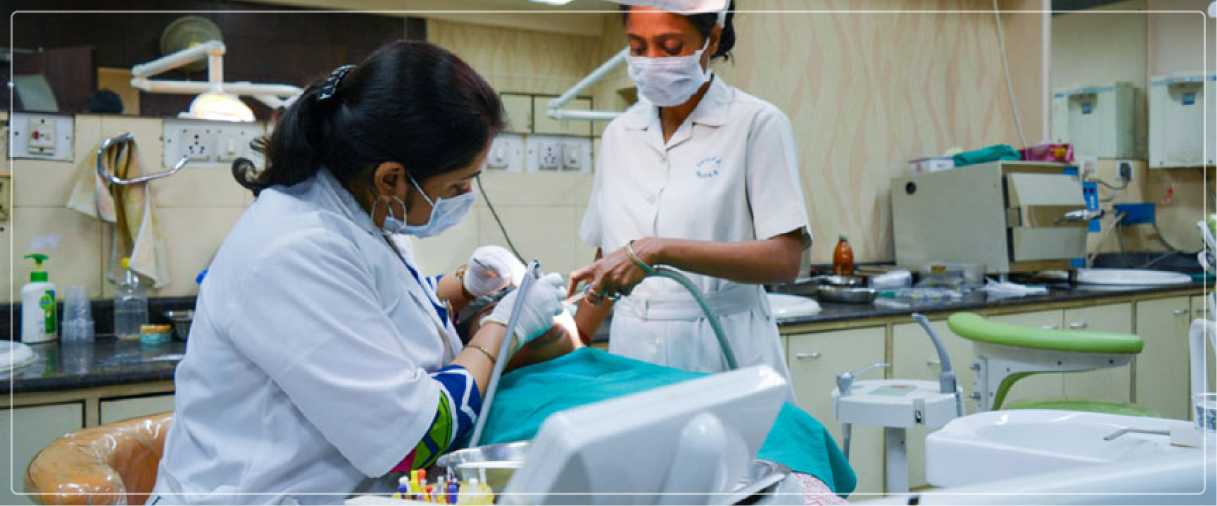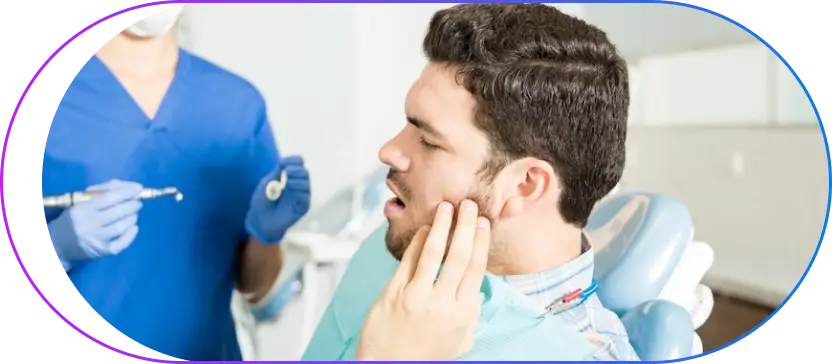TMJ Disorder Treatment
Home > Treatments > TMJ Disorder Treatment
TMJ Disorder Treatment in Kolkata
The temporomandibular joint (TMJ) is a hinge that connects your jaw to your skull on both sides of your head. It allows you to move your jaw up and down, side to side, and forward and backward when you eat, talk, and yawn. TMJ dysfunction (TMD) is a general term for various conditions that affect the TMJ, the muscles and ligaments that hold it in place, and the surrounding tissues.

Our Clinics
Unit
Kolkata-700029
Kolkata-700029
Kolkata-700084
Kolkata - 700008
Symptoms of TMJ Dysfunction
Common symptoms of TMJ dysfunction include:
- Pain in your jaw or tenderness
- Pain in your face or ear
- Clicking or popping sounds when opening the mouth
- Difficulty or discomfort while chewing
- Locking of your jaw or limited jaw movement
- Facial swelling
- Facial pain radiating to ears and head
- Unexplained headaches
- Headaches

Book An Appointment
Causes of TMJ Disorder
TMJ causes are multifaceted and can include:
- Chronic teeth grinding (bruxism)
- Arthritis
- A jaw injury, such as from a blow to the face
- Genetic predisposition
- Chronic stress
- Misaligned dental structures
- Jaw clenching
- Poor posture
TMJ/TMD & Sleep Apnea
What is Sleep Apnea?
Sleep apnea is a sleeping disorder that transpires when the airway becomes blocked and prevents proper airflow during sleep. This condition often leads to disrupted rest, resulting in fatigue and stress. Characterised by repeated breathing interruptions during sleep, this disorder impacts overall health and jaw functionality.
Connection of TMJ/TMD & Sleep Apnea
There is a strong connection between TMJ dysfunction and sleep apnea. People with TMJ may be more likely to have sleep apnea and vice versa. This is because the muscles that control the jaw are also involved in keeping the airway open during sleep. When these muscles are tight or inflamed, they can narrow the airway and contribute to sleep apnea. Also, poor jaw alignment caused by TMD, muscle tension, and breathing patterns can worsen sleep apnea symptoms, leading to breathing difficulties while sleeping.
Impact of Sleep Apnea on TMD
Sleep apnea can worsen TMJ symptoms. The constant struggle to breathe during sleep can put a strain on the jaw muscles. It can lead to pain and inflammation in the TMJ areas and affect quality of life.
Note: There is a correlation between sleep apnea and TMJ disorder, but having sleep apnea does not always mean you have TMJ and vice versa.
Evaluation Process
If you are experiencing any of the symptoms of TMJ dysfunction, it is important to see a doctor or dentist for diagnosis and treatment. The doctor will perform your
- Detailed medical history review
- Physical jaw examination
- Advanced TMJ x-rays, MRI scan diagnostics
- Comprehensive muscle and joint assessment
Managing Sleep Apnea and TMJ Disorder
The doctor will determine the treatment for TMJ dysfunction and sleep apnea depending on the severity of your condition. Here are some approaches:
TMJ Disorder Treatment
- Pain relievers and anti-inflammatory medications
- Relaxation techniques, such as massage or applying heat
- Oral appliance to splint the jaw
For TMJ, we offer non-invasive therapies such as physical therapy, splints, and medication, alongside other interventions like orofacial surgery when necessary.

Sleep Apnea Treatment
- CPAP (continuous positive airway pressure) machine to help maintain an open airway during sleep
- Oral appliance to keep the airway open
- Surgery (in some cases)
At Smile and Profile, our expertise in both orofacial pain treatment and sleep apnea treatment helps address these conditions simultaneously. We provide comprehensive care to reduce pain, improve function, and enhance your quality of life.
Post-Treatment Care
After a successful treatment, individuals should maintain:
- Regular follow-up consultations
- Consistent exercise regimens
- Stress reduction practices
- Ongoing lifestyle modifications
- Avoid grinding or clenching
- Eating a soft diet
- Applying heat or ice to your jaw (as doctor recommend)
